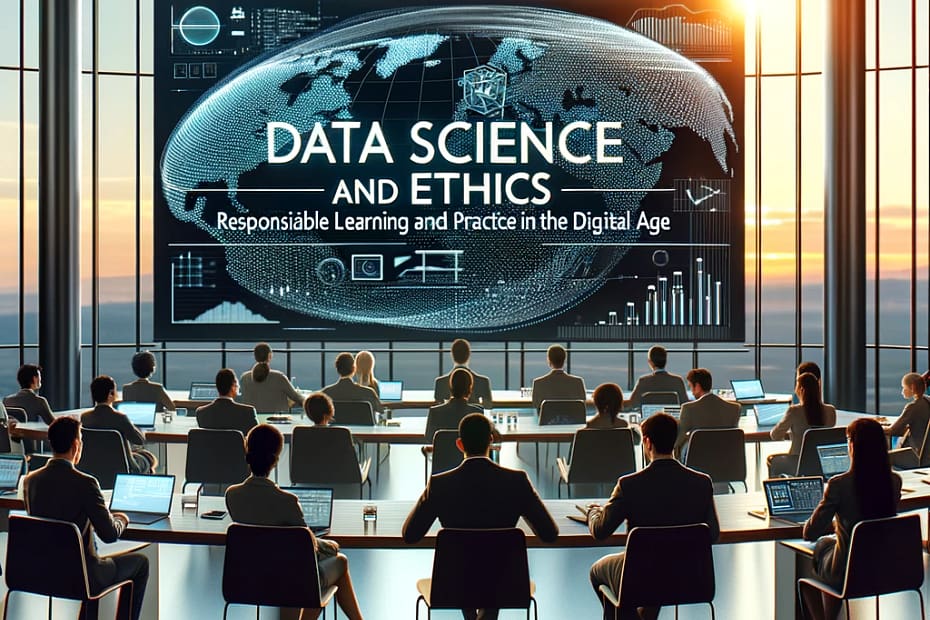Data Science and Human Rights: A Codependent Relationship
Data science and human rights may seem like strange bedfellows, but they share a surprisingly codependent relationship. On one hand, data science has given rise to powerful tools and techniques that can potentially assist in the protection and promotion of human rights. From identifying patterns in crime data to predicting the spread of diseases, data science has the potential to revolutionize the way we approach human rights issues. However, like any powerful tool, data science also raises ethical concerns that must be addressed.
The ethical implications of using data science in the context of human rights are no laughing matter. With the vast amounts of personal data being collected and analyzed, questions of privacy, consent, and control come into play. In the wrong hands, data science could be used to manipulate and oppress individuals, rather than empowering them. Striking the right balance between utilizing the potential of data science for societal good while safeguarding individual rights is a challenge that requires careful consideration. After all, we don’t want a world where algorithms decide our fate, and the only decision-making power we have is whether to ask Alexa to order pizza or Chinese takeout.
The Ethics of Big Data: Can It Be Truly Anonymous?
As the saying goes, “they see you when you’re sleeping and they know when you’re awake.” No, I’m not talking about Santa Claus; I’m talking about the ever-watchful eyes of big data. In this digital age, vast amounts of information are being collected, analyzed, and used for various purposes. But the question that lingers in the minds of many is: can this data be truly anonymous?
Let’s face it, trying to achieve complete anonymity in the realm of big data is like trying to hide a neon sign in a dark room. It’s a tricky business. Sure, we can strip away obvious identifiers like names, addresses, and Social Security numbers, but can we really say that the data is truly anonymous? After all, it’s not just about the data itself, but also about the seemingly innocuous pieces of information that can be pieced together to form a startlingly accurate picture of an individual’s life. So, while we may think we’re invisible in the vast sea of data, think again – somewhere out there, someone could be sipping their coffee, smirking at our attempts at anonymity.
The Power
Data science, with all its algorithms and predictive models, has indeed bestowed upon humanity a mighty power. It is like being handed the world’s most advanced magical wand, capable of conjuring insights from mountains of data. With just a few strokes, data scientists can uncover patterns, solve complex problems, and even predict the future. It’s almost as if they have become the sorcerers of the digital era, enchanting us all with their analytical prowess.
But let’s not forget the saying, “With great power comes great responsibility.” Yes, data science has its fair share of power, but it’s not without its risks and ethical dilemmas. Just as a sorcerer may accidentally turn a frog into a prince instead of a pumpkin into a carriage, data scientists can inadvertently manipulate and misuse data. And let’s be honest, the thought of our personal information being mishandled or misinterpreted is as terrifying as a potion gone wrong. So, as data scientists conjure their magical insights, it is crucial for them to embrace the responsibility that comes with their power and use it for the greater good, rather than a source of mischief or harm.
In this curious dance between data science and human rights, we find ourselves in a codependent relationship. On one hand, data science has enabled us to understand and address various human rights issues more effectively. It has empowered advocacy groups with accurate data, helping them make stronger cases for change. For example, when demanding equal pay for women, data science can provide concrete evidence of the gender pay gap, leaving no room for doubt or denial. It’s like having a perfectly timed magic trick up our sleeves, revealing the truth in a way that is impossible to ignore.
On the other hand, human rights issues hold the key to unlocking the full potential of data science. Without an ethical framework around data collection and use, the very foundation that data science relies on – trust – crumbles. If people perceive data scientists as manipulative wizards who exploit their personal information for selfish gain, they will be less inclined to share their data. And without the necessary data inputs, the powerful algorithms and models lose their potency, rendering data science impotent in solving the critical challenges we face as a society.
So, let’s not underestimate the power of data science, nor overlook the power of human rights. It’s a boundless interplay between technology and values, where the ethical application of data science can drive positive social change. As we navigate this complex relationship, let’s remember to approach it with equal measures of awe and responsibility, casting our data-driven spells wisely for a brighter future.

